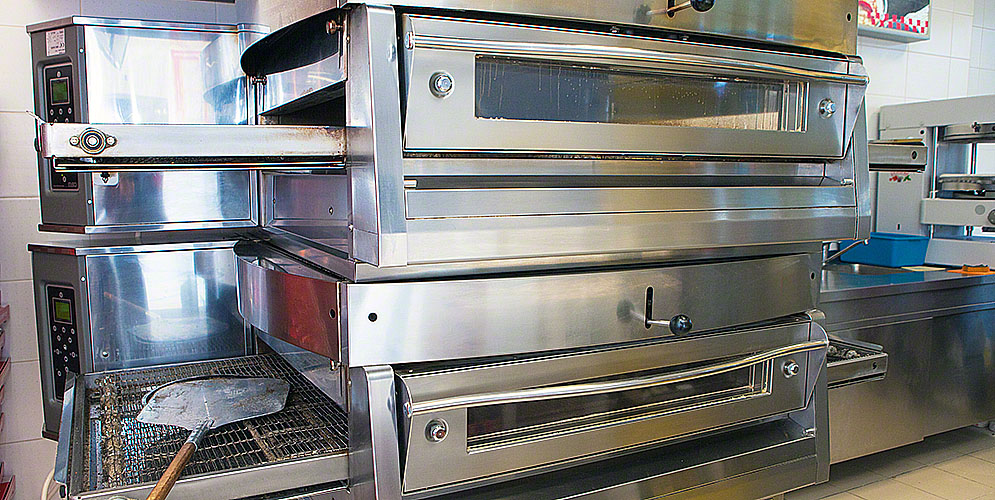
Choosing the Right Refrigerator Commercial Kitchen
The heartbeat of efficiency lies within the choice and maintenance of commercial refrigerators. The selection process involves a careful comparison between space considerations, energy efficiency, and the durability needed to withstand the rigors of a bustling culinary environment. To ensure that the pulse of your kitchen remains strong, incorporating professional commercial refrigerator services becomes paramount. From the initial selection to the routine maintenance, these services are the guiding force that sustains the optimal functionality and longevity of these indispensable kitchen workhorses.
Choosing the Right Refrigerator for Your Commercial Kitchen
Having the right refrigerator is crucial for smooth operations. Selecting the most suitable refrigerator can be a daunting task, but with some key considerations, you can ensure your kitchen stays efficient.
Size Matters
Firstly, consider the size of your commercial kitchen. Measure the available space where the refrigerator will be placed. It’s vital to choose a refrigerator that fits seamlessly into your kitchen layout. A refrigerator that is too large might create congestion, while one that is too small may not meet your storage needs.
Capacity Counts
Once you know the space available, think about the storage capacity you require. Evaluate the volume of perishable items your kitchen handles daily. A busy kitchen demands a refrigerator with ample storage to accommodate fresh produce, dairy, meats, and other essentials. Choosing a refrigerator with adjustable shelves can provide flexibility for various-sized items.
Energy Efficiency Saves
In a commercial kitchen, where appliances are in constant use, energy efficiency is a key consideration. Look for refrigerators that are energy efficient. The design of these appliances is to consume less energy, reducing your utility costs over time. Opting for energy-efficient models not only benefits your wallet but also contributes to a greener environment.
Temperature Control Precision
Maintaining the right temperature is crucial for keeping food fresh. Look for refrigerators with precise temperature control features. A refrigerator that allows you to set and monitor the temperature ensures that your perishables remain at their optimal freshness. This is especially important for complying with food safety regulations.
Easy Maintenance is Essential
Commercial kitchens operate at a fast pace, and downtime for maintenance should be less. Choose a refrigerator with easy-to-clean surfaces and accessible components. This not only ensures a sanitary environment but also simplifies routine maintenance tasks. Quick and straightforward maintenance contributes to the overall efficiency of your kitchen.
Consider Refrigerator Type
Commercial refrigerators come in various types, each serving specific needs. Reach-in refrigerators are suitable for quick access to frequently used items, while walk-in refrigerators offer extensive storage for larger kitchens. Undercounter refrigerators are compact options for smaller spaces. Consider the layout and requirements of your kitchen to determine the most appropriate type for your needs.
Durability for Longevity
In a busy commercial kitchen, appliances undergo substantial wear and tear. Investing in a durable refrigerator is a smart decision for the long run. Look for models with robust construction, reliable components, and a solid reputation for longevity. A durable refrigerator not only withstands the rigors of daily use but also provides a reliable storage solution for years to come.
Maintaining Commercial Refrigerators
In the fast world of commercial kitchens, ensuring the smooth functioning of equipment is paramount. One key player in this bustling environment is the commercial refrigerator. To keep this essential appliance running efficiently, commercial kitchen appliance repair Northern VA is crucial.
Regular Cleaning for Efficiency
Start with regular cleaning. Keep the refrigerator’s interior and exterior clean to prevent the accumulation of dirt and debris. Wipe down surfaces with a mild cleaning solution to maintain a hygienic environment. Clean coils and vents to ensure optimal airflow, which is vital for the refrigerator’s cooling efficiency.
Check and Replace Gaskets
Another critical aspect of preventive maintenance is checking and, if necessary, replacing gaskets. Gaskets are the rubber seals around the refrigerator doors. Over time, they may wear out, leading to energy wastage as cold air escapes. Regular inspection and prompt replacement of damaged gaskets ensure a tight seal, helping the refrigerator operate efficiently.
Monitor Temperature Settings
Temperature control is a key factor in keeping perishable items fresh. Regularly monitor and adjust the temperature settings. Ensure that the refrigerator maintains the correct temperature to prevent food spoilage. A well-maintained refrigerator not only preserves the quality of your ingredients but also supports compliance with food safety regulations.
Clean and Inspect Condenser Coils
Condenser coils play a vital role in the refrigeration process. These coils dissipate heat from the refrigerator, helping it maintain the temperature. Regular cleaning and inspection of the condenser coils are essential to prevent dust and debris buildup. Dirty coils can lead to overheating and inefficient cooling. Keep them clean for optimal performance.
Inspect and Clean Drain Lines
Commercial refrigerators come with drain lines to remove excess moisture. Over time, these drain lines may become full with debris, leading to water buildup inside the refrigerator. Regularly inspect and clean drain lines to prevent water damage and maintain a dry, sanitary environment.
Brand Reputation Matters
When choosing a commercial refrigerator, consider the reputation of the brand. Choose for popular brands known for producing reliable and high-quality appliances. Reading customer reviews and seeking recommendations from industry peers can provide valuable insights into the performance and reliability of different brands.
Examine the Evaporator Fan
The evaporator fan is responsible for circulating cold air within the refrigerator. Regularly examine and clean the fan to ensure smooth operation. A well-functioning evaporator fan distributes cold air evenly, preventing temperature variations and ensuring that all items in the refrigerator remain at the temperature.
Schedule Professional Inspections
While regular maintenance tasks can be done in-house, scheduling professional inspections is equally important. Professionals have the expertise to identify potential issues that may go unnoticed during routine checks. Regular professional inspections can catch problems early, preventing costly breakdowns and ensuring the longevity of your commercial refrigerator.
Replace Worn-Out Parts Promptly
In the event that components show signs of wear and tear, prompt replacement is crucial. Waiting to address worn-out parts can lead to further damage and compromise the efficiency of the refrigerator. Keep a close eye on components like fans, motors, and thermostats, and replace them as soon as signs of deterioration appear.
Conclusion
In a commercial kitchen, the choice of a refrigerator is a strategic decision that reverberates through the efficiency of operations. Balancing considerations such as size, capacity, energy efficiency, and durability is paramount to ensuring that your kitchen not only runs smoothly but does so in a sustainable and cost-effective manner. Moreover, the commitment to preventive maintenance emerges as a cornerstone in guaranteeing the continued functionality of this vital appliance. By implementing regular cleaning routines, monitoring temperature settings, and scheduling commercial appliances repair Springfield inspections, you invest not just in equipment but in the smooth flow of culinary excellence..
